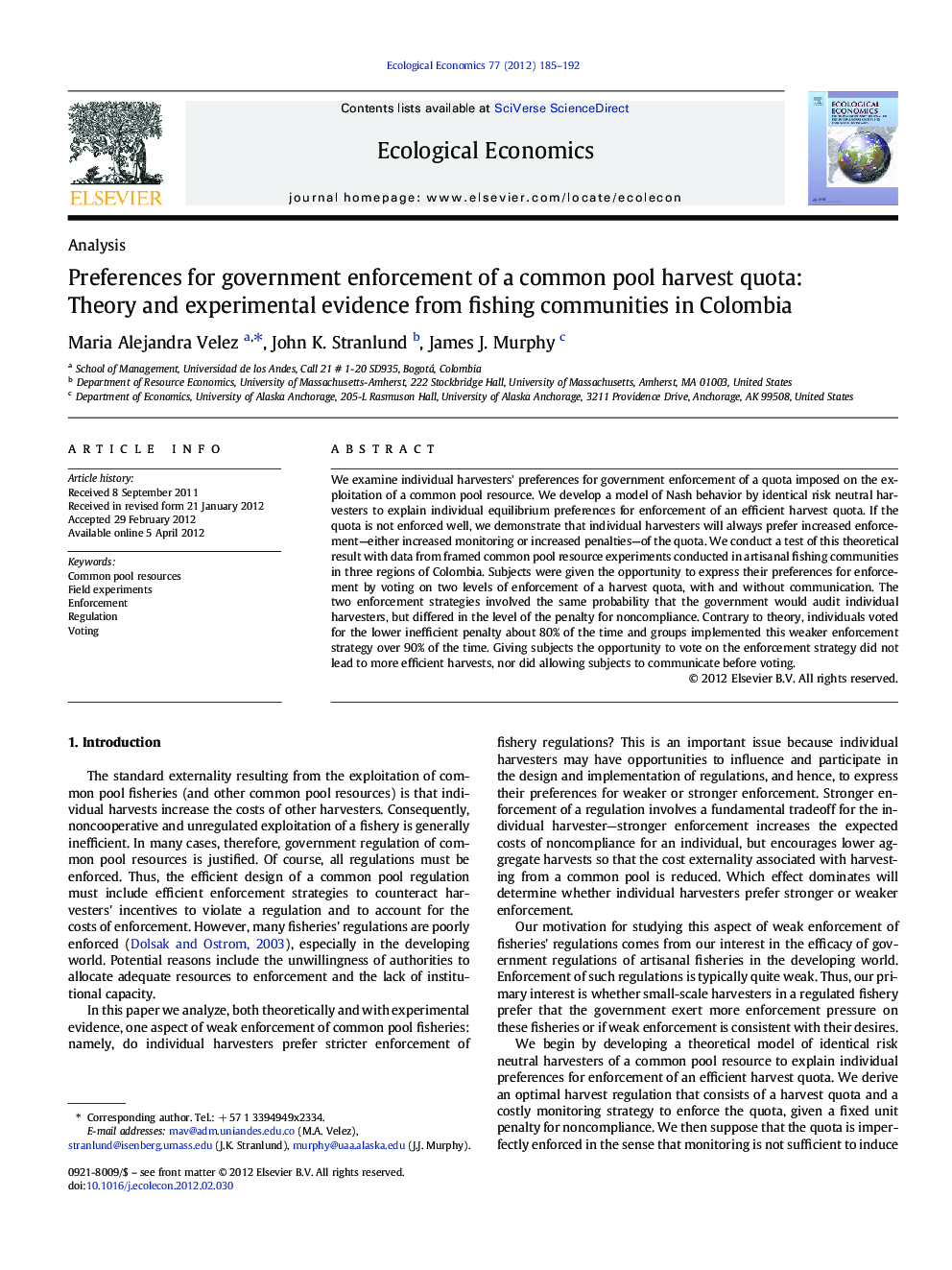| کد مقاله | کد نشریه | سال انتشار | مقاله انگلیسی | نسخه تمام متن |
|---|---|---|---|---|
| 5050289 | 1476402 | 2012 | 8 صفحه PDF | دانلود رایگان |

We examine individual harvesters' preferences for government enforcement of a quota imposed on the exploitation of a common pool resource. We develop a model of Nash behavior by identical risk neutral harvesters to explain individual equilibrium preferences for enforcement of an efficient harvest quota. If the quota is not enforced well, we demonstrate that individual harvesters will always prefer increased enforcement-either increased monitoring or increased penalties-of the quota. We conduct a test of this theoretical result with data from framed common pool resource experiments conducted in artisanal fishing communities in three regions of Colombia. Subjects were given the opportunity to express their preferences for enforcement by voting on two levels of enforcement of a harvest quota, with and without communication. The two enforcement strategies involved the same probability that the government would audit individual harvesters, but differed in the level of the penalty for noncompliance. Contrary to theory, individuals voted for the lower inefficient penalty about 80% of the time and groups implemented this weaker enforcement strategy over 90% of the time. Giving subjects the opportunity to vote on the enforcement strategy did not lead to more efficient harvests, nor did allowing subjects to communicate before voting.
⺠Field experiments focusing on preferences for government enforcement of a harvest quota in common pool resource. ⺠Individuals given opportunity to vote on enforcement levels before making harvest decisions. ⺠Contrary to theory, individuals consistently voted for weaker, inefficient enforcement. ⺠Ability to vote on enforcement did not lead to more conservative harvest choices, nor did communication prior to voting.
Journal: Ecological Economics - Volume 77, May 2012, Pages 185-192